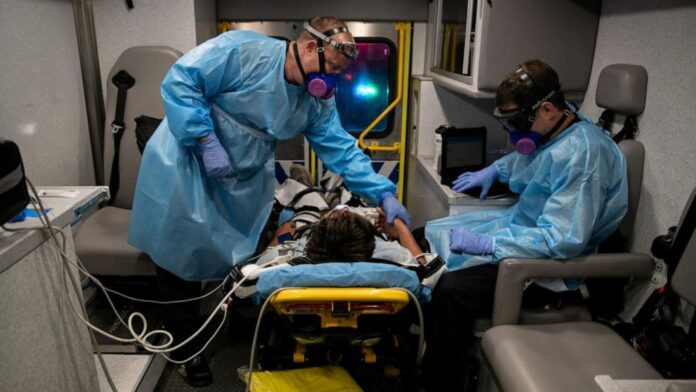Point of View
Children make up 1 per cent to 4 per cent of total reported Covid-19 hospitalisations, and between 0.6% and 6.9% of all child Covid-19 cases lead to hospitalization.
With the second wave of Corona-19 pandemic turning virulent across the country, parents and guardians have expressed concern over the safety of their children. The ongoing Covid surge has taken a toll on health of kids between the age of one and five with several hospitals reporting a sharp rise in their number.
There have been questions about the impact of Carona on younger children. Yes, it can also afflict kids in a milder form. Hence, parents need to be extra cautious and learn that children who can be
infected with SARS-CoV-2 (Covid-19) are also capable of transmitting it to others. There is, obviously, need to take precautions to prevent infection in kids as well as in adults.
Chinese researchers have found that severe symptoms of Covid-19 were less common among children than in adults. Children who had been infected in China displayed mild symptoms or no symptoms at all, while only one of them died.
Aaron Milstone, a pediatrician at Johns Hopkins Children’s Center at Baltimore in Maryland province (US) and an authority on infectious diseases suggests ways to keep children safe after they are diagnosed with Covid-19 symptoms.
Some children have shown symptoms caused by inflammation in their body weeks after infection with the virus. Milstone elaborates on the risks posed by infected kids and alerts parents about the multi-inflammatory syndrome in children (MIS-C), a rare condition caused by exposure to the virus. Doctors are trying to relate the symtoms with Corona virus.
Paediatricians suspect that women infected with coronavirus can transmit the disease to their newborns. The United States Center for Disease Control and Prevention supports the view that most infants who test positive for the coronavirus with mild symptoms can recover. But there are instances of serious cases for which pregnant women should take precautions to avoid the disease.
Generally, Covid-19 symptoms are milder in kids than in adults. Among the symptoms children showed are cough, fever with shivering, shortness of breath, sore threat, red lips, muscle or body pains, diarrhoea, loss of taste and smell, headache, nausea or vomiting and congestion or runny nose.
Fever and cough are common Covid-19 symptoms in both adults and children. But shortness of breath is seen invariably in adults. Children can have pneumonia, with or without the obvious symptoms like
sore throat, fatigue or diarrhoea.
Parents should seek prompt medical assistance if they see symptoms in their children such as soar throat or difficulty in breathing. Parents should inform the doctor if the child has been residing near a
locality inhabited by Corona afflicted people. The doctors will decide whether the child should get treated at home or visit a hospital. In case of tele-health visit, the doctor shall examine the child on video while the parents stay indoors. In case, the doctors think the child needs immediate care they will guide the parents where to go.
If the doctor thinks your child has Covid-19 symptoms, everyone in the family should stay indoors until testing is done. Pets and relatives must keep off the sick child. Only one person should take care of the sick child so that others are not exposed to the ailment.
“The virus is spreading to pediatric age group in the current surge. The number of kids coming to hospitals with Covid-19 has increased five-fold as compared to last year. We have a three-month-old infant admitted to ICU with pneumonia,” reveals Pediatric Intensivist Dhiren Gupta of Sir Ganga Ram Hospital, New Delhi.
According to a report published in October, 2020, by the American Academy of Pediatrics, about 11% of patients with COVID-19 are children. Children make up 1 per cent to 4 per cent of total reported
Covid-19 hospitalisations, and between 0.6% and 6.9% of all child Covid-19 cases lead to hospitalisation, adds the report.
Precautions can certainly lower your child’s chance of becoming infected with the Coronavirus. If possible, sick child should use a separate bathroom from others. All others in the family should also
frequently wash their hands with soap.
“Indoor activities are riskier than outdoor activities, but risk can be reduced by masking, distancing, hand washing, and improved ventilation,” suggests Milstone.







































